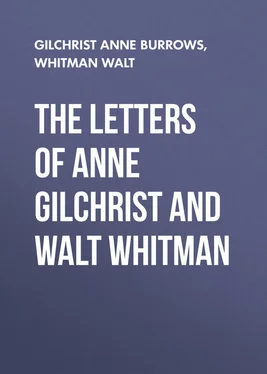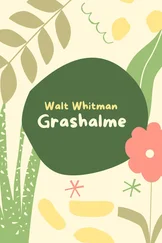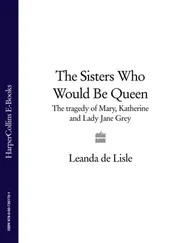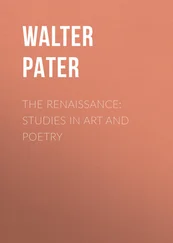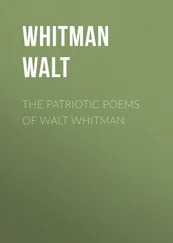Walt Whitman - The Letters of Anne Gilchrist and Walt Whitman
Здесь есть возможность читать онлайн «Walt Whitman - The Letters of Anne Gilchrist and Walt Whitman» — ознакомительный отрывок электронной книги совершенно бесплатно, а после прочтения отрывка купить полную версию. В некоторых случаях можно слушать аудио, скачать через торрент в формате fb2 и присутствует краткое содержание. Жанр: foreign_antique, foreign_prose, на английском языке. Описание произведения, (предисловие) а так же отзывы посетителей доступны на портале библиотеки ЛибКат.
- Название:The Letters of Anne Gilchrist and Walt Whitman
- Автор:
- Жанр:
- Год:неизвестен
- ISBN:нет данных
- Рейтинг книги:3 / 5. Голосов: 1
-
Избранное:Добавить в избранное
- Отзывы:
-
Ваша оценка:
- 60
- 1
- 2
- 3
- 4
- 5
The Letters of Anne Gilchrist and Walt Whitman: краткое содержание, описание и аннотация
Предлагаем к чтению аннотацию, описание, краткое содержание или предисловие (зависит от того, что написал сам автор книги «The Letters of Anne Gilchrist and Walt Whitman»). Если вы не нашли необходимую информацию о книге — напишите в комментариях, мы постараемся отыскать её.
The Letters of Anne Gilchrist and Walt Whitman — читать онлайн ознакомительный отрывок
Ниже представлен текст книги, разбитый по страницам. Система сохранения места последней прочитанной страницы, позволяет с удобством читать онлайн бесплатно книгу «The Letters of Anne Gilchrist and Walt Whitman», без необходимости каждый раз заново искать на чём Вы остановились. Поставьте закладку, и сможете в любой момент перейти на страницу, на которой закончили чтение.
Интервал:
Закладка:
Anne Gilchrist
The Letters of Anne Gilchrist and Walt Whitman
PREFACE
Probably there are few who to-day question the propriety of publishing the love-letters of eminent persons a generation after the deaths of both parties to the correspondence. When one recalls the published love-letters of Abelard, of Dorothy Osborne, of Lady Hamilton, of Mary Wollstonecraft, of Margaret Fuller, of George Sand, Bismarck, Shelley, Victor Hugo, Edgar Allan Poe, and – to mention only one more illustrious example – of the Brownings, one must needs look upon this form of presenting biographical material as a well-established, if not a valuable, convention of letters.
As to the particular set of letters presented to the reader in this volume, a word of explanation and history may be required. Most of these letters are from Anne Gilchrist to Walt Whitman, a few are replies to her letters, and a few are letters from her children to Whitman. Mrs. Gilchrist died in 1885. When, two years later, her son, Herbert Harlakenden Gilchrist, was collecting material for his interesting biography of his mother, Whitman was asked for the letters that she had written to him – or rather for extracts from them. In reply to this request the poet said, “I do not know that I can furnish any good reason, but I feel to keep these utterances exclusively to myself. But I cannot let your book go to press without at least saying – and wishing it put on record – that among the perfect women I have met (and it has been my unspeakably good fortune to have had the very best, for mother, sisters, and friends) I have known none more perfect in every relation, than my dear, dear friend, Anne Gilchrist.” But since Whitman carefully preserved them for twenty years, refusing to destroy them as he had destroyed such other written matter as he did not care to have preserved, it would appear that he intended that so beautiful a tribute to the poetry that he had written, no less than to the personality of the poet, should be included in that complete biography which is being slowly written, by many hands, of America’s most unique man of genius. In any case, when these letters came into my hands in the apportionment of Whitman’s literary legacy under the will which named me as one of his three literary executors, there were but three things which I could honourably do with them – rather, on closer analysis, there seemed to be but one. To leave them in my will or to place them in some public repository would have been to shift a responsibility which was evidently mine to the shoulders of others who, perhaps, would be in possession of fewer facts in the light of which to discharge that responsibility. To destroy them would be to do what Whitman should have done if it was to be done at all, and to erase forever one of the finest tributes that either the man or the poet ever received, one of the most touching self-revelations that a noble soul ever “poured out on paper.” The remaining alternative was to edit and publish them (after keeping them a proper length of time), for the benefit, not only of the general reader, but as an aid to the future biographer who from the proper perspective will write the life of America’s great poet and prophet. In this determination my judgment has been confirmed by that of the few sympathetic friends who, during the twenty-five years that the letters have been in my possession, have been allowed to read them.
It is a matter of regret that so few of Whitman’s letters to Mrs. Gilchrist are available. Those included in this volume, sometimes in fragmentary form, have been taken from loose copies found among his papers after his death, or, in a few instances, are reprinted from Herbert Harlakenden Gilchrist’s “Anne Gilchrist” or Horace Traubel’s “With Walt Whitman in Camden.” Acknowledgment of these latter is made in each instance. But though Whitman’s letters printed in this correspondence will not compare with Mrs. Gilchrist’s in point of number, enough are presented to suggest the tenor of them all.
As a matter of fact, the first love-letter from Anne Gilchrist to Walt Whitman was in the form of an essay written in his defense called “An Englishwoman’s Estimate of Walt Whitman.” For that reason this well-known essay is reprinted in this volume; and “A Confession of Faith,” in reality an amplification of the “Estimate” written several years after the publication of the latter, is included. The reader who desires to follow the story of this friendship in a chronological order will do well to read at least the former of these tributes before beginning the letters. Indebtedness is acknowledged to Prof. Emory Halloway of Brooklyn, New York, for valuable suggestions.
T. B. H.INTRODUCTION
Undoubtedly Mrs. Gilchrist’s “Estimate of Walt Whitman,” published in the (Boston) Radical in May, 1870, was the finest, as it was the first, public tribute ever paid to the poet by a woman. Whitman himself so considered it – “the proudest word that ever came to me from a woman – if not the proudest word of all from any source.” But a finer tribute was to follow, in the sacred privacy of the love-letters which are now made public forty years and more after they were written. The purpose of this Introduction is not to interpret those letters, but to sketch the story in the light of which they are to be read. And since both Anne Gilchrist and Walt Whitman have had sympathetic and painstaking biographers, it will not be necessary here to mention at length the already known facts of their respective lives.
The story naturally begins with Whitman. He was born at West Hills, Long Island, New York, on May 31, 1819. His father was of English descent, and came of a family of sailors and farmers. His mother, to whom he himself attributed most of his personal qualities, was of excellent Hollandic stock. Moving to Brooklyn while still in frocks, he there passed his boyhood and youth, but took many summer trips to visit relatives in the country. He early left the public school for the printing offices of local newspapers, picking enough general knowledge to enable him, when about seventeen years of age, to teach schools in the rural districts of his native island. Very early in life he became a writer, chiefly of short prose tales and essays, which were accepted by the best New York magazines. His literary and journalistic work was not confined to the metropolis, but took him, for a few months in 1848, so far away from home as New Orleans. In 1851-54, besides writing for and editing newspapers, he was engaged in housebuilding, the trade of his father. Although this was, it is said, a profitable business, he gave it up to write poetry, and issued his first volume, “Leaves of Grass,” in 1855. The book had been written with great pains, according to a preconceived plan of the author to be stated in the preface; and it was finally set up (by his own hands, for want of a publisher) only, as he tells us, after many “doings and undoings, leaving out the stock ‘poetical’ touches.” Its publication was the occasion of probably the most voluminous controversy of American letters – mostly abuse, ridicule, and condemnation.
In 1862 Whitman’s brother George, who had volunteered in the Union Army, was reported badly wounded in the Fredericksburg fight. Walt, going at once to the war front in Virginia, found that his brother’s wound was not serious enough to require his ministrations, but gradually he became engaged in nursing other wounded soldiers, until this work, as a volunteer hospital missionary in Washington, engrossed the major part of his time. This continued until and for some years after the end of the war. Whitman’s own needs were supplied by occasional literary work and from his earnings as a clerk first in the Interior and later in the Attorney General’s Department. He had gone to Washington a man of strong and majestic physique, but his untiring devotion, fidelity, and vigilance in nursing the sick and wounded soldiers in the army hospitals in and about Washington was soon to shatter that constitution which was ever a marvel to its possessor, and to condemn him to pass the last two decades of his life in unaccustomed invalidism. The history of the Civil War in America presents no instance of nobler fulfilment of duty or of sublimer sacrifice.
Читать дальшеИнтервал:
Закладка:
Похожие книги на «The Letters of Anne Gilchrist and Walt Whitman»
Представляем Вашему вниманию похожие книги на «The Letters of Anne Gilchrist and Walt Whitman» списком для выбора. Мы отобрали схожую по названию и смыслу литературу в надежде предоставить читателям больше вариантов отыскать новые, интересные, ещё непрочитанные произведения.
Обсуждение, отзывы о книге «The Letters of Anne Gilchrist and Walt Whitman» и просто собственные мнения читателей. Оставьте ваши комментарии, напишите, что Вы думаете о произведении, его смысле или главных героях. Укажите что конкретно понравилось, а что нет, и почему Вы так считаете.
